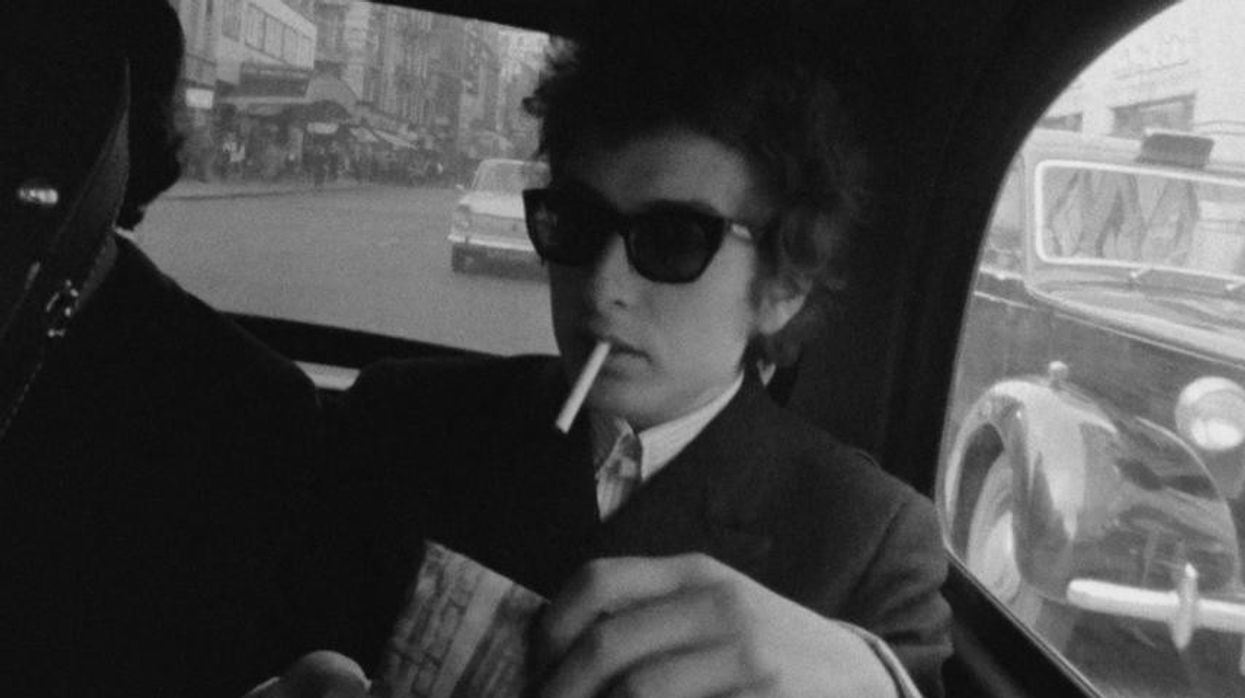Bob Dylan Says to Make America Great... You Need to Start with the Movies
How do you make a great film? Bob Dylan might have the answer.

Bob Dylan might be the single most written-about musician in popular culture. While he has long dominated the world of music, Dylan has maintained a special relationship with cinema.
Dylan’s vision as a filmmaker wasn’t remotely as celebrated as his songwriting capabilities, but the medium has always remained a vital part of his artistic career. From his 1972 documentary Eat the Document to his four-hour-long feature film, Renaldo and Clara, Dylan has never been shy about sharing his influences for his work.
That list of influences includes Charlie Chaplin, Nicholas Ray, John Ford, Jean-Luc Godard, and Federico Fellini—all cinematic legacies that moved him to create powerful and unforgettable films.
In his latest book, The Philosophy of Modern Song, Dylan talks about the importance of finding those influences from filmmakers who defined modern cinema. He writes that people should watch movies despite their political incorrectness or lack of color to discover something new and memorable in the stories that defined a generation.
“Those who dismiss movies from before their time as merely simplistic are missing out on Kirk Douglas’ bravura performance in Billy Wilder’s Ace in the Hole, which predicted the toxicity of media manipulation, of Brando in On the Waterfrontas dockworker Terry Malloy, who learns it's not his night and testifies against a corrupt union boss who had his brother killed,” Dylan writes.
Other performances that Dylan writes as noteworthy studies of cinema include High Noon (1952), The Heiress (1949), Sweet Bird of Youth (1962), The Treasure of the Sierra Madre (1948), and 12 Angry Men(1957).
When talking about 12 Angry Men, Dylan writes that he believes it might have been “the first indie movie ever made” due to its budget of $300,000. It is also one of the few movies that have been satirized, lampooned, rewritten, imitated, reimagined, remade, and modernized because of how tight the script was and how strong the performances in that single location were.
While Dylan acknowledges that the global world of cinema is full of gems that deserve more recognition, he writes that “America has always been a great melting pot but there are few things that have been created here and then given back to the world,” and cinema is one of those few things.
“As good a player as Stephane Grappelli is, you have to go back to King Oliver, Buddy Bolden, and Louis Armstrong to find the beating heart of jazz,” Dylan said. “Likewise, Fellini, Kurosawa, and their counterparts around the world have made some terrific movies but we all know where the film industry got its first slap on the ass and drew its initial breath.”
“People keep talking about making America great again. Maybe they should start with the movies,” Dylan writes.
If you want to make great movies, start with the classics that have defined cinema. You might not like all of those movies because they do not push a certain idea far enough or could have done something differently with a camera angle or movement, but that can power the next story you decide to tell.
What are some movies that you would add to Dylan’s classic movie list? Let us know what they are in the comments!
Source: The Philosophy of Modern Song











